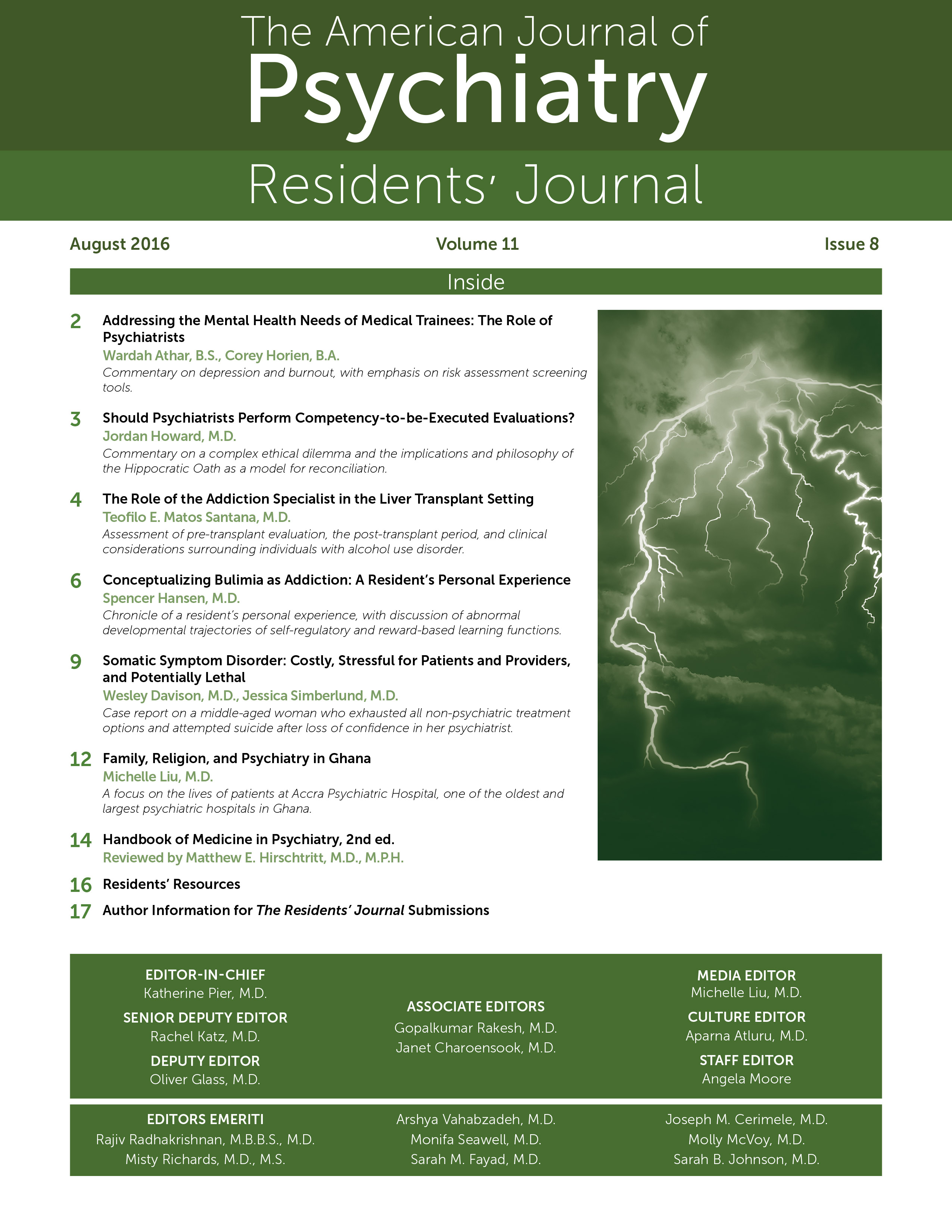Those who say “yes” often see a competency-to-be-executed evaluation as an opportunity to advocate for a patient in need, specifically, being able to testify with expertise that a patient’s rights and life would be violated should an execution be carried out. However, as residents and the upcoming generation of psychiatrists, it is important to understand and adopt why the World Psychiatric Association, World Health Organization, and World Medical Association have declared that psychiatrists should not participate in assessments of competency-to-be executed evaluations (
1–
3). These and many other organizations have cited that as psychiatrists, our skills, expertise, and advocacy should be in the best interest of a patient’s health and well-being. It’s hard to reconcile this objective with a competency evaluation plan that potentially renders a patient appropriate for lethal injection. Granted, it is a slippery ethical dilemma. Psychiatrists must reconcile beneficence and nonmaleficence and determine if evaluating and recommending treatments for inmates with the goal of restoring capacity to the point that they can understand the basis for their execution is assisting law officials carry out justice or a way to partake of capital punishment.
To resolve the debate, we should call upon the Hippocratic Oath. Understanding the implications and the philosophy of this oath will remind us that despite the noble efforts to rescue the incompetent, our priority is to never risk participation in a patient care scenario in which harm is the end-goal.
One may question the Hippocratic Oath and how the role of the psychiatrist in these evaluations is defined as harmful? Those who advocate for psychiatrists to perform these evaluations may define harm in the physical sense and suggest that psychiatrists are not directly hurting the patient. Others may argue that a patient on death row was put there by the legal system, not the psychiatrist. From this viewpoint, once it has been ruled that an inmate go to death row, no more harm can be done. The psychiatrist evaluating can only question the validity of that ruling.
To counter, I would recall Milgram’s famous social experiment and the concept of diffusion of responsibility (
4). Milgram’s study explained how individuals are able to participate in horrendous actions with innocent mindsets because they deflect the responsibility of the acts onto others, particularly authority (
4). Psychiatrists who perform competency-to-be-executed evaluations may analogously pin responsibility on legal directives from the judge and state laws. This, however, does not exempt psychiatrists from their primary responsibility in providing care to those in need and upholding their commitment to never harm patients. Whether you are slamming the gavel, performing the competency-to-be-executed evaluation, or delivering the injection, any participation in a series of events that leads to the intentional death of an individual should be considered harmful and would violate the Hippocratic oath.
While capital punishment is still permitted in this country, competency-to-be-executed evaluations are necessary to thwart inappropriate judgments. However, psychiatrists should consider how they reconcile these evaluations with their oaths to do no harm prior to assuming this responsibility.
Acknowledgments
The author thanks Monifa Seawell, M.D., an Editor Emeritus of the Residents’ Journal.
